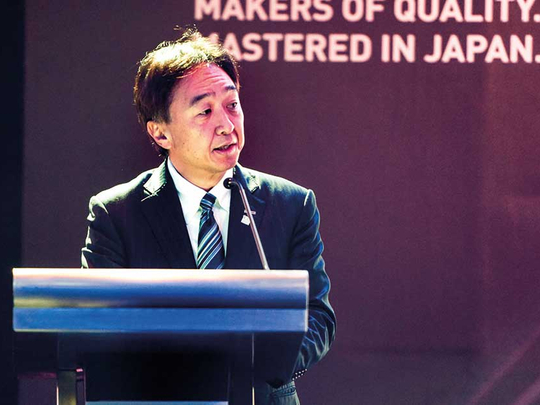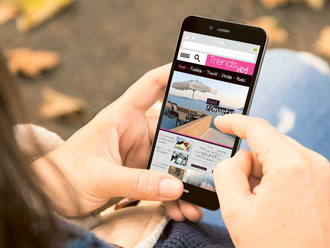
Dubai: Panasonic expects its Middle East and Africa (MEA) business to grow 110 per cent this fiscal year as it embarks on a new strategy to deepen its product reach in the region.
“We had a very good year-on-year growth last year. We are aiming to achieve the same growth this fiscal year [April to March] also. We achieved our business plan in the first three months of the year,” Hiroki Soejima, managing director of Panasonic Marketing Middle East and Africa, told Gulf News on the sidelines of its annual dealers’ convention in Dubai to celebrate its 100th anniversary.
He said that there are ways to influence end users in a better way. “We haven’t been really involved in this. Therefore, we want to work with business partners to expand distribution and more products in more stores so that we have more touchpoints for end users,” he said.
The Japanese company has chalked out its growth strategy for the next three years in a bid to cut its reliance on consumer electronics and focus more on business-to-business (B2B) segment.
Soejima said that B2C (business-to-consumer) is bigger and B2B contributes only less than 30 per cent to the growth.
Soejima said that B2C is still a strong market in the Middle East and “we are expanding our product portfolio. Now, Panasonic will come with its full product line-up, from small to major appliances”.
Due to less advertisement in the past, he said that the brand awareness is weak and the company is in a bid to reboot its brand awareness,
“We will double our marketing spend this year,” he said. “In B2B, we are strong in communications division such as EPABX [Electronic Private Automatic Branch Exchange] and telephones. Where we want to grow is in projectors and security solutions this year,” he said.
Compared to the competitors, he said that Panasonic does not have a strong presence on the shop front.
He added that the shop-in-shop concept is better as the exclusive brand shop will work only for some categories.
“We will not open a dedicated brand shop and we had that experience before as the cost per performance is not that good. Rather than trying to drive the consumer who is very busy and looking for a one-time shopping, it is much more efficient for us to dress up a shop where people go,” he said.
Digital transformation
The company expects its consumer business to grow at an annual rate of 120 per cent during the 2018-2020 period.
In the region, he said growth will come from the B2C segment.
The UAE, Saudi Arabia, Oman, Kuwait and Pakistan are the key markets for the Japanese company.
“We had a huge growth in Saudi Arabia last year and properly not to digital transformation. We opened up more distribution networks in the Kingdom, especially in Jeddah,” he said.
Panasonic saw 110 per cent year-on-year growth in Saudi Arabia, its largest market in value terms last year, while in UAE, it maintained the same growth as last year of close to 100 per cent.
As Saudi Arabia opened its first cinema theatre with Marvel’s “Black Panther” on Wednesday after 35 years, Soejima sees huge opportunities for its projectors and revenue.
When asked when internet connected fridges and washing machines be available in the region, he said that it is difficult to say when it will be available.
“The reason is what do you connect to and what will be the standard for central control. We need to be careful as it is a big investment. It will take around two years for Panasonic to introduce IoT devices in Japan first, then China and Asia,” he said.












